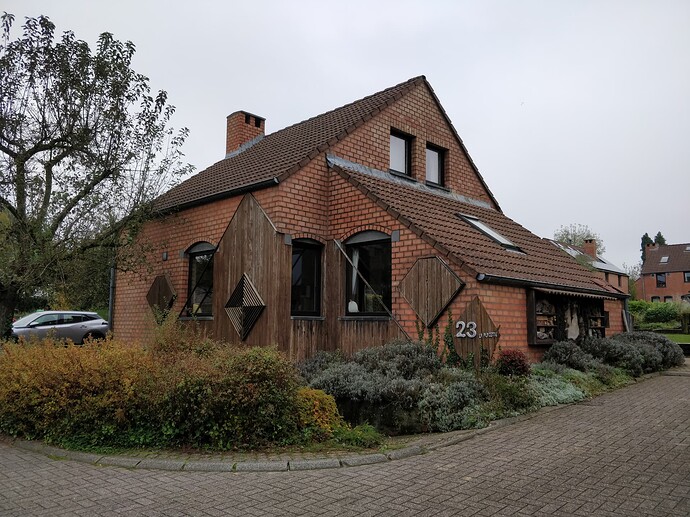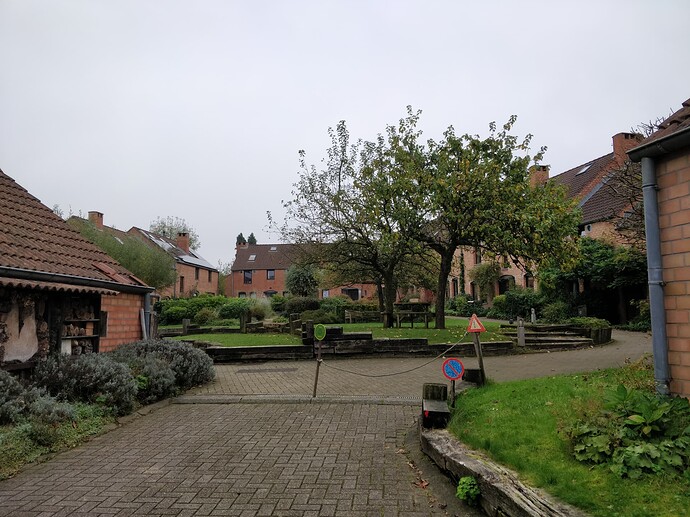Hi everyone,
This afternoon, I went to Wezembeek-Oppem to visit La Placette (a co-housing project). There, I had a long conversation with one of their members (Philippe) about their experience with their inclusive units.
This co-housing project was created in 1986 and has 10 individual single family houses and 3 inclusive units (Philippe told me 3 it is the maximum they can handle because of the amount of energy and responsibility it involves). They also have a common building with:
- a garage for bicycles,
- a common room and kitchen and
- a flat above for workshop, activities and to house some temporary residents or visitors.
They is also a very big common garden and small private gardens for each house.
Once their co housing project was ready, they created a NPO (I think that’s the right translation for asbl) to deal with their inclusive units. All of them are members of that NPO. They never had to look for candidates for their inclusive units because they were either approached by different social services or by word of mouth. The “candidates” to the inclusive units (people they think they can help) have to present a project and sign a lease. Once the group accepts a “candidate”, they issue that person with 1 year lease (renewable twice). For each person accepted, there are 2 “referents” from the Placette who are the first point of contact for the “candidate” and one finance person making sure the candidate respect his/her financial obligation.
In regards to their experience with the various people who stayed in their inclusive units, Philippe told me they had a variety of different persons ranging from:
- someone who had problems with alcohol (bad experience never to be done again);
- people with physical and/or mental disabilities;
- a young lady with psychiatric problems (not a success because too demanding during the night and after a while, they couldn’t handle it anymore and that lady had to find a more suitable solution for herself);
- migrants (from far the easiest group to manage / deal with).
And when the people from the Placette need a break from the responsibility of looking after the tenants of those inclusive units, they will lease their inclusive units to friends or acquaintances who need temporary housing.
Once a month, everyone (including the people from the inclusive units) have to give a hand to tend the garden, do some cleaning and do some repair around the Placette.
Philippe told me that it is extremely important to be able to regularly reevaluate the project of these inclusive unit and to have referents for the people they accept in their inclusive units.
Very interesting conversation and constructive feedback from someone who experienced first hand inclusive units in a co housing.
= Common space= individual houses grouped around a little square (= la placette)

